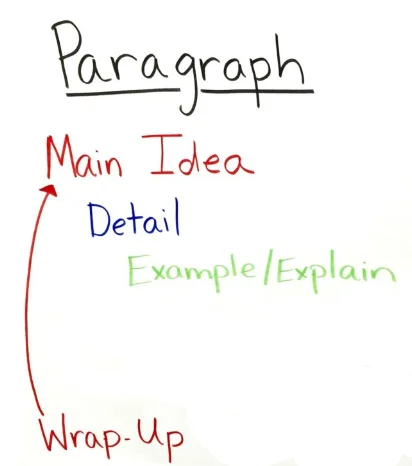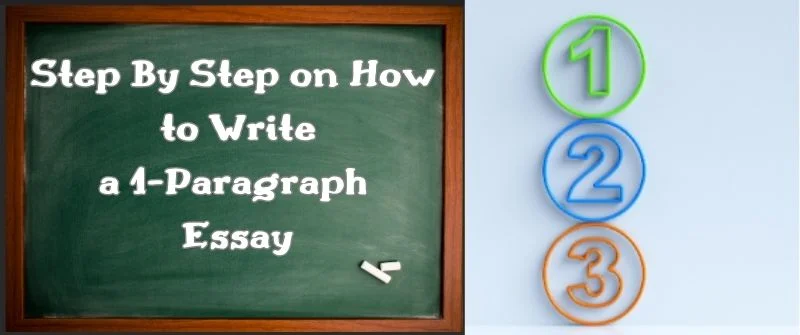Have you ever heard of the one-paragraph essay? It is a popular assignment at many colleges and universities worldwide, but many students struggle. Knowing what makes them so challenging is a good way to improve writing essays.
One of the challenging elements of this type of essay is that there are no extra paragraphs to break up your main point for readers to process what you are saying.
Can an Essay have 1 Paragraph?
Many students struggle with writing essays. They do not know where to begin. They write many paragraphs with nothing to do with each other.
An essay can have one paragraph if the argument to be presented fits into just one paragraph. It can also be one paragraph if the instructions from your instructor or professor require you to only focus on one thing in a short way. However, it would typically be a specific type of essay requiring only one paragraph, such as a definition or a descriptive essay. Either way, just follow the instructions.

It is important to remember that an essay’s purpose is to convey ideas and information in a clear and organized manner, often achieved through multiple paragraphs.
Nonetheless, writing a coherent and effective essay in a single paragraph is possible.
It should be well-structured and effectively communicate the main ideas and supporting details.
How to Write a 1-Paragraph Essay – A Step-by-Step Guide
Writing a one-paragraph essay may seem daunting, but it is possible with the right approach. Here is a step-by-step guide to help you write a concise and compelling one-paragraph essay:
- Choose a topic: Select a narrow and focused topic to be covered in a single paragraph. A one-paragraph essay addresses a particular aspect of a broader topic.
- Develop a thesis statement: Create a statement communicating your essay’s main idea. This statement should be concise and to the point and provide a preview of the following supporting details.
- Brainstorm supporting details: Consider specific details, examples, or evidence supporting your thesis statement. Choose the most relevant and compelling details that will effectively communicate your point.
- Organize your thoughts: Organize your supporting details logically and coherently. Start with a clear topic sentence. It should relate to your thesis statement and use supporting sentences to provide additional information and examples.
- Write the essay: Remember you have limited space to pass your ideas. Be concise and focus on the most critical points. Use transitional phrases to connect your sentences and make your essay flow smoothly.
- Edit and revise: Review your essay for clarity, correctness, and coherence. Ensure your sentences are grammatically correct and your ideas are presented logically. Remove unnecessary information or repetitions, and ensure your essay is within the word count limit.
Reasons why 1 paragraph is not enough for an essay

- Limited space: A one-paragraph has limited space, making exploring complex ideas in detail hard. It is hard to thoroughly analyze or discuss a topic within such a limited space.
- Insufficient evidence: A single-paragraph essay may not offer enough space to put sufficient evidence to support the thesis statement. Without evidence, the essay may lack credibility. It may fail to persuade the reader.
- Lack of clarity: A single-paragraph essay may be unclear and confusing. It can be hard to organize multiple ideas within a single paragraph. This makes it hard for the reader to follow the logic of the argument.
- Inability to address counterarguments: For the writer to write a strong and persuasive essay, it is critical to consider and address counterarguments.
A single-paragraph essay lacks enough space to address potential counterarguments, which may weaken the overall argument.
- Inability to provide context: Context is crucial in assisting readers in understanding the importance of the ideas presented in an essay. A single-paragraph essay lacks enough space to offer sufficient background information and context, making it hard for readers to grasp its meaning fully.
- Limited opportunities for revision: A single-paragraph essay may be hard to revise, as there are few opportunities to add, delete or rearrange content.
Can an essay be two paragraphs?

A two-paragraph essay can be a concise and effective way to pass on ideas and information.
Yes, an essay can be two paragraphs. The initial paragraph introduces a two-paragraph essay’s main idea or thesis statement. The second paragraph offers supporting details, evidence, or examples to reinforce the thesis statement. More importantly, this structure gives a clear and organized framework for developing and presenting ideas concisely and effectively.
While a two-paragraph essay may also be short, it still allows for a degree of complexity and nuance in the argument or discussion.
With two paragraphs, writers can explore their topic more deeply, offer more detailed evidence or examples, and engage with counterarguments or alternative perspectives.
The Advantages of a Two-Paragraph Essay
- A clear and organized structure
- The ability to present
- Develop ideas in a concise and effective manner
- You can explore a topic in more depth while maintaining simplicity and clarity.
